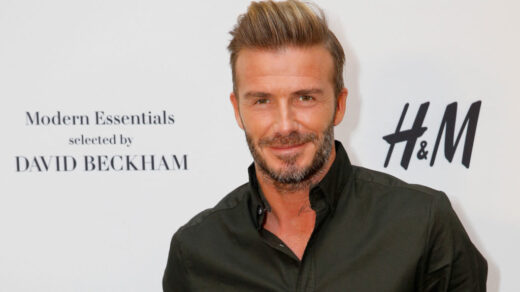Bananarama on gay bars, LGBTQ+ fans and the 80s: ‘Cher booted us off stage’
Author: Patrick Kelleher
Sara Dallin and Keren Woodward performing at Diamond Awards Festival in Belgium in 1992. (Gie Knaeps/Getty)
During her headline set at Primavera, Lorde unleashed a surprise cover of the Bananarama classic “Cruel Summer”.
You would be forgiven for thinking that Bananarama members Sara Dallin and Keren Woodward might be a little protective of the song, but they’re far from it – in fact, they’re overjoyed to see it getting a new lease of life.
“I think ‘Cruel Summer’ has proved to be a classic song because different artists cover it for each generation – and it’s quite a big hit,” Sara tells PinkNews. “When Ace of Base did their cover, it went top ten in America again. Evanescence did it in lockdown on the keyboard, it sounded beautiful. Lorde has done it. There have been rap ones and all kinds of things. I don’t know what it is about that song, but it really has taken on a life of its own now.”
For Keren, what Lorde did with “Cruel Summer” isn’t too far removed from what Bananarama did with “Venus” in 1986. The song, originally recorded by Dutch band Shocking Blue, skyrocketed to number one when Sara, Keren and former bandmate Siobhan Fahey covered it in their own style.
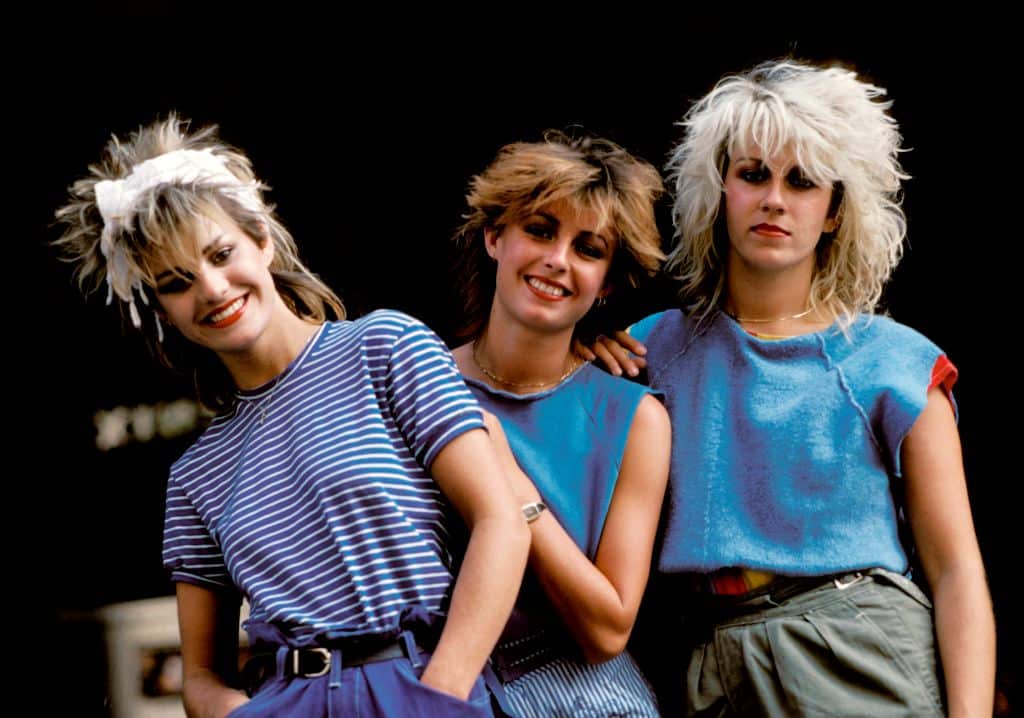
“We sort of reimagined it in exactly the style we wanted to with Stock, Aitken and Waterman – I think it was the first song we did with them – and they said, ‘You can’t have guitars in a pop song,’ and we said, ‘Well we want guitars.’ So we did that and it ended up number one in the States and all over the world.”
Bananarama want people to ‘live the way they want to’
It’s now 40 years since Bananarama first burst onto the music scene with their big hair and punky aesthetic. They were one of England’s foremost bands, and they were a near constant fixture in the charts for much of the ’80s.
Their story is well worn at this stage – Sara and Keren were childhood friends who both had a keen interest in music. They moved to London, where they met the Irish singer-songwriter Siobhan Fahey. Between the years of 1982 and 1988 they had countless hits with songs like “Really Saying Something”, “Love in the First Degree” and “I Heard a Rumour”. In 1988, Siobhan left to form Shakespears Sister, which remains best known for the power ballad “Stay”.
It’s easy to forget just how massive Bananarama were, but the stats speak for themselves. To this day, they hold the Guinness World Record for the all-female group with the most UK chart entries in history.
The bulk of their chart success might have happened in the ’80s, but they’re far from a legacy band. Bananarama are still on the go, and Sara and Keren are currently gearing up to release their 12th studio album Masquerade. It was originally supposed to be an EP, but they ended up creating an entire album when successive COVID lockdowns left them with a little more time on their hands than they had anticipated.
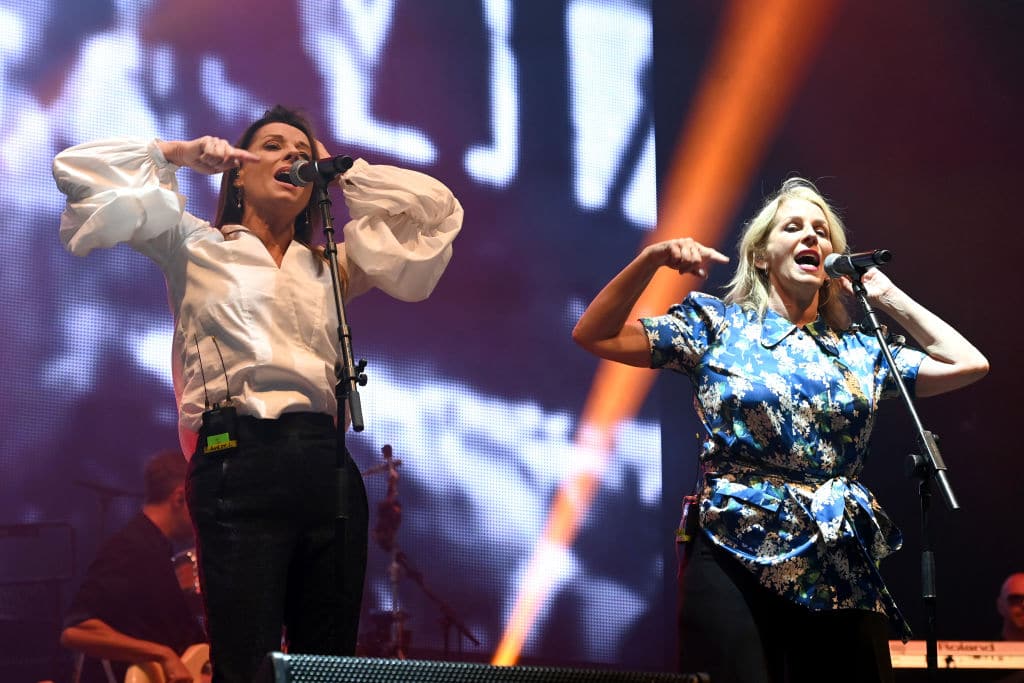
“Spending so much time in your own house and being surrounded only by TV, the media and conversations, it was kind of a time for reflection,” Sara says. “For me, lyrically, there was some nostalgic stuff. There’s a song called ‘Forever Young’ which I wrote with Alice D, my daughter. That was about mine and Keren’s friendship and our adventures. It definitely made me reflect on how far we’d come through 40 years.”
Just let people live the way they want to. That’s the inspiration for the title track.
Sara and Keren also looked outside of themselves in writing the songs for Masquerade. They felt a sense of alienation when looking at the world around them – that’s most apparent on the album’s title track.
“I had the idea for the lyrics because stuff in the media was very much about inclusivity and diversity, gender equality and female equality – all those sorts of things, and I just felt exasperated by the fact that, why can’t people just let people live the way they want to without calling them out and threatening them and whatever it is?” Sara says. “Just let people live the way they want to. That’s the inspiration for the title track.”
Their new album is inspired by the ’80s: ‘It still stands the test of time’
Masquerade deals with some big themes, but at its core, it’s a “joyous” electro-pop album that’s naturally infused with ’80s synth-pop.
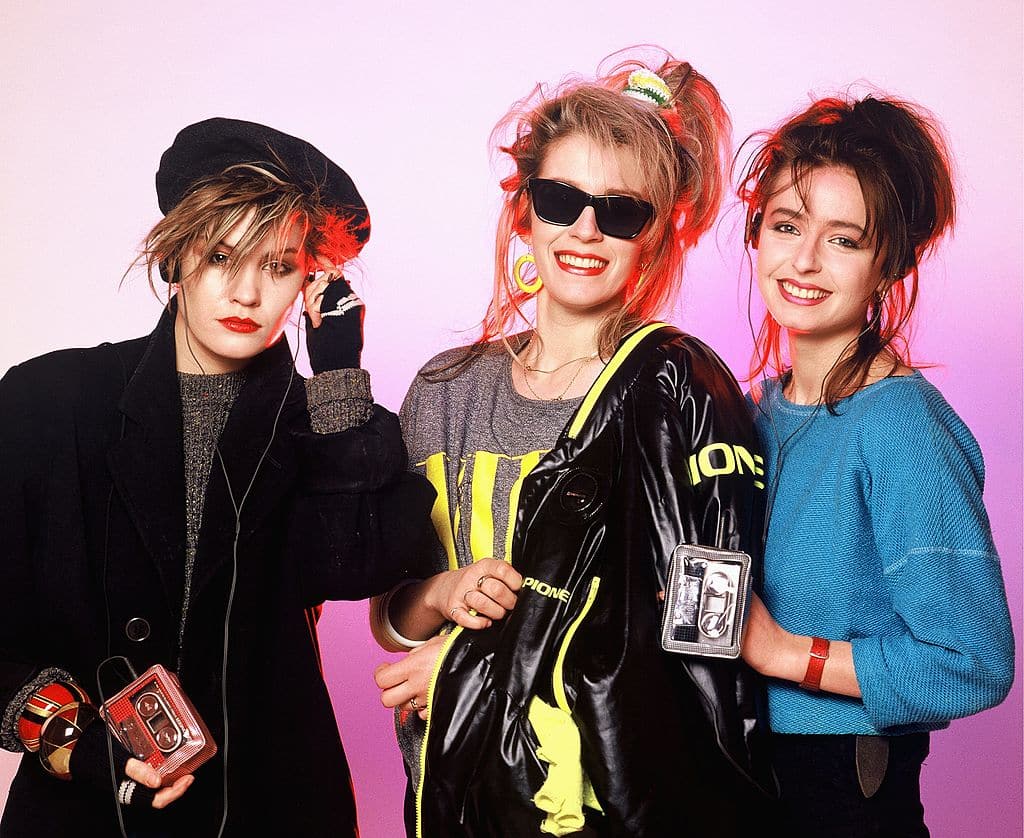
“Sara and I, our hearts are in that electro-pop/dance genre,” Keren says. “If you consider the music we’d been listening to as well, whether it’s the Jessie Ware album or The Weeknd or Dua Lipa, there’s a real nod to the ’80s in all that music but it’s somehow current at the same time, so I feel that our album is something that isn’t too far removed from what people would like from us and what we love to listen to. It’s all gelled together really well – like a modern ’80s vibe.”
Luckily for Bananarama, ’80s pop music is very much in vogue. Kate Bush’s “Running Up That Hill” recently stormed to the top of the charts after it was featured in Stranger Things, beating its original chart peak in the process. For Sara and Keren, it’s simple – ’80s music is timeless.
“When I think back, people used to say, ‘Oh the ’80s was a terrible decade, it was all backcombed hair and shoulder pads,’ but for me it was all very identifiable artists,” Sara says. “I think each person, each group or solo artist, we all wrote our own music, we all styled ourselves – we didn’t have the big glam teams they do now – it was all quite organic. It was very much a pop decade and it still stands the test of time.”
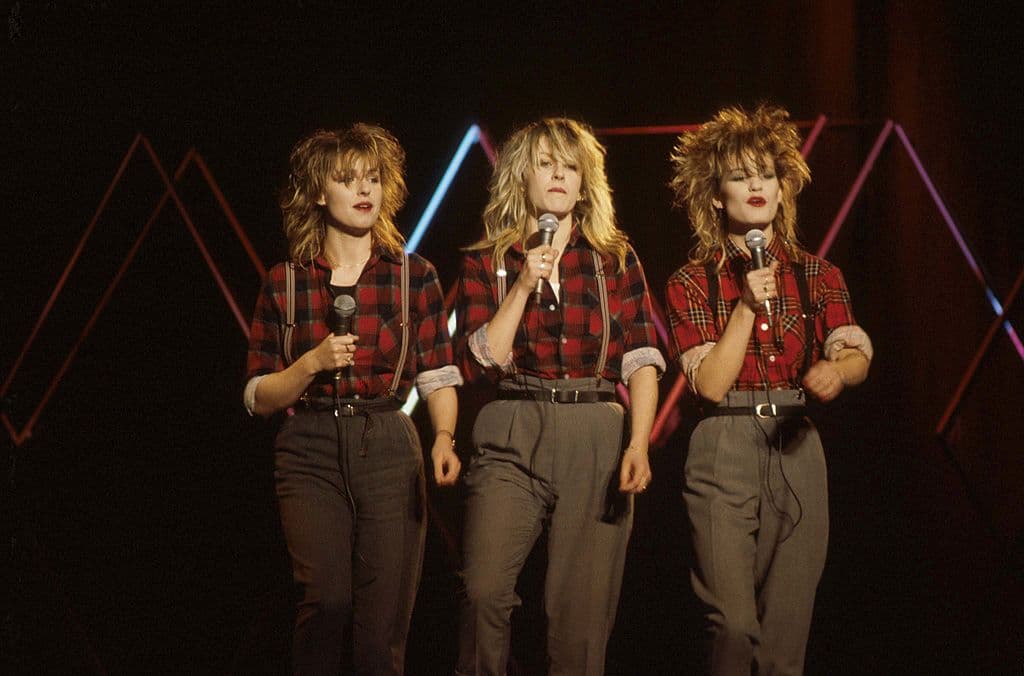
Bananarama were ingrained in the ’80s gay scene
Both Sara and Keren are also keenly aware how much the LGBTQ+ community has stood by them throughout their careers, from when they started out in the early ’80s right up to now. They’ve always felt a kinship with their queer fans.
“I think it’s [about] always having to fight for what you want. Gay people have had to do that and women have had to do that, so maybe that’s an identifiable similarity,” Sara suggests. “I think for us our music is a bit cheeky, a bit sassy. I like to think that people gravitate towards that sort of thing. And it’s fun – it’s a party type of music. It makes you feel good.”
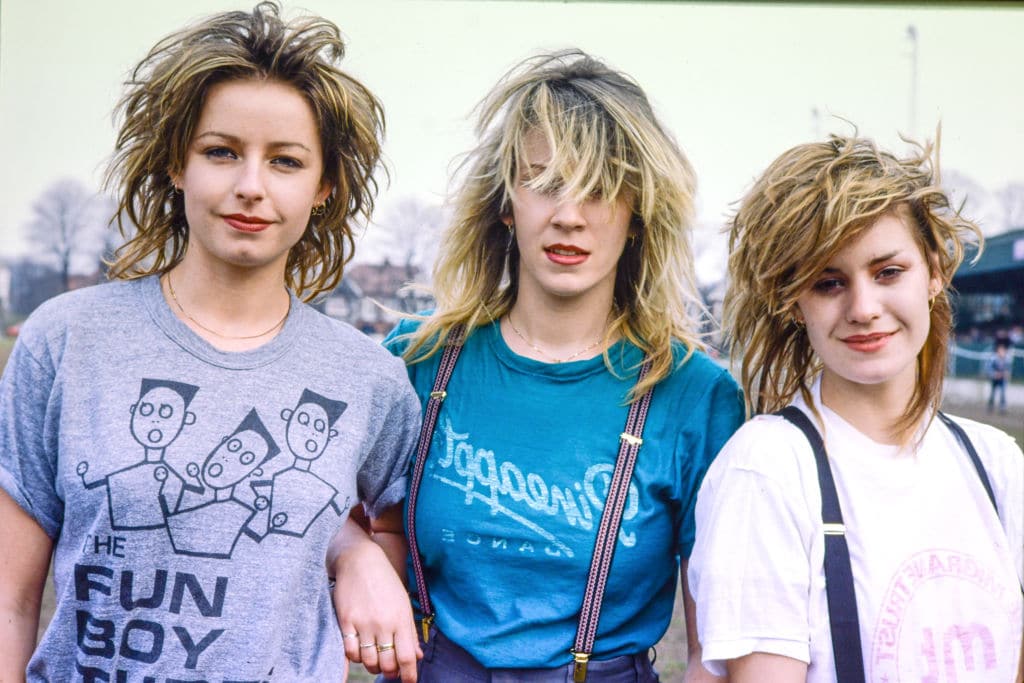
Keren also makes the point that much of Bananarama’s early music videos – and their general style – was undeniably camp. The relationship between themselves and their LGBTQ+ fanbase always felt natural.
“We’ve always had so many gay friends, friends from that community, and we have a sort of real connection with them,” she says.
So regularly we’d come home with a bruise or a cut or a chipped tooth from someone swinging a handbag in your face or something!
Sara and Keren’s eyes light up when they start talking about the nights they spent in some of London’s foremost gay clubs in the ’80s. They were regulars in Brixton’s Daisy Chain, which has since closed down, and they were so well known in Heaven that the manager would let them go behind the bar to make their own drinks.
“Our nights out were so frantic,” Keren laughs. “So regularly, we’d come home with a bruise or a cut or a chipped tooth from someone swinging a handbag in your face or something!”
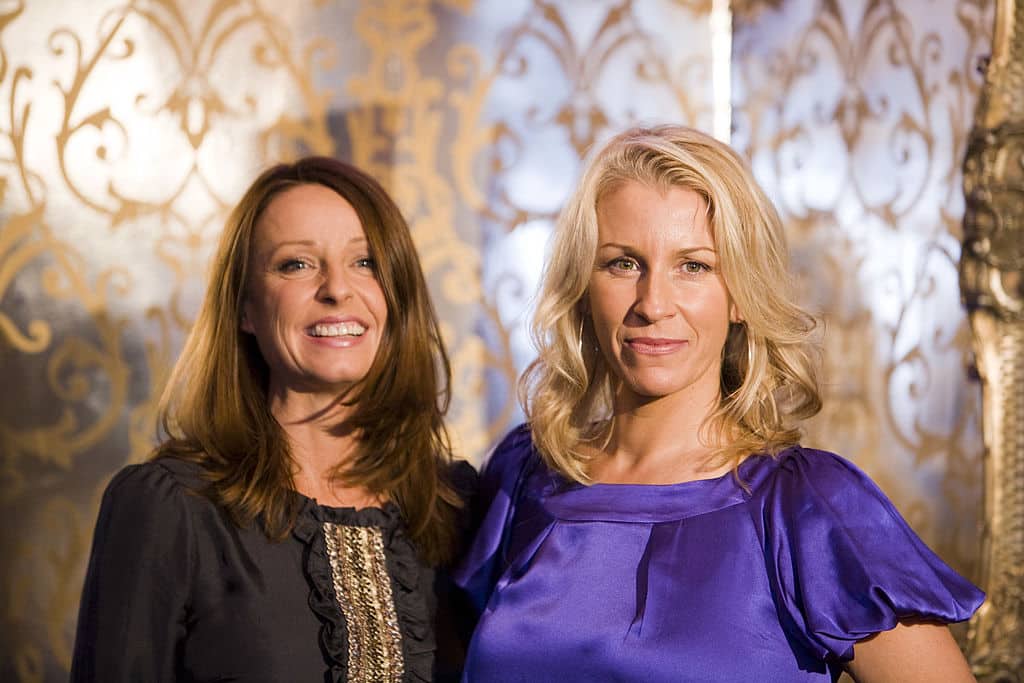
There was one night when they up dancing on stage in Heaven when they were booted off to make way for none other than Cher herself.
“It’s like, what’s she doing here? She came on and did two songs,” Sara laughs.
‘Disgusting’ record labels took advantage of young artists
It was a glorious time, but it didn’t come without its challenges. Sara and Keren are glad that they now have full ownership and control over the music they release – but that wasn’t always the case.
“I mean we initially signed for no advance,” Sara explains. “We almost signed a publishing deal for peanuts because we didn’t know anything about it and five grand sounded like a lot of money.” Her advice to aspiring artists is simple – get a good lawyer before you agree to anything.
“I didn’t realise everything that was spent was recoupable,” she says, referring to the music industry practice where labels pay for the recording and marketing of an album up front, but later deduct the costs from the profits. “Even when they’ve got it all back, you still don’t own [the music].”
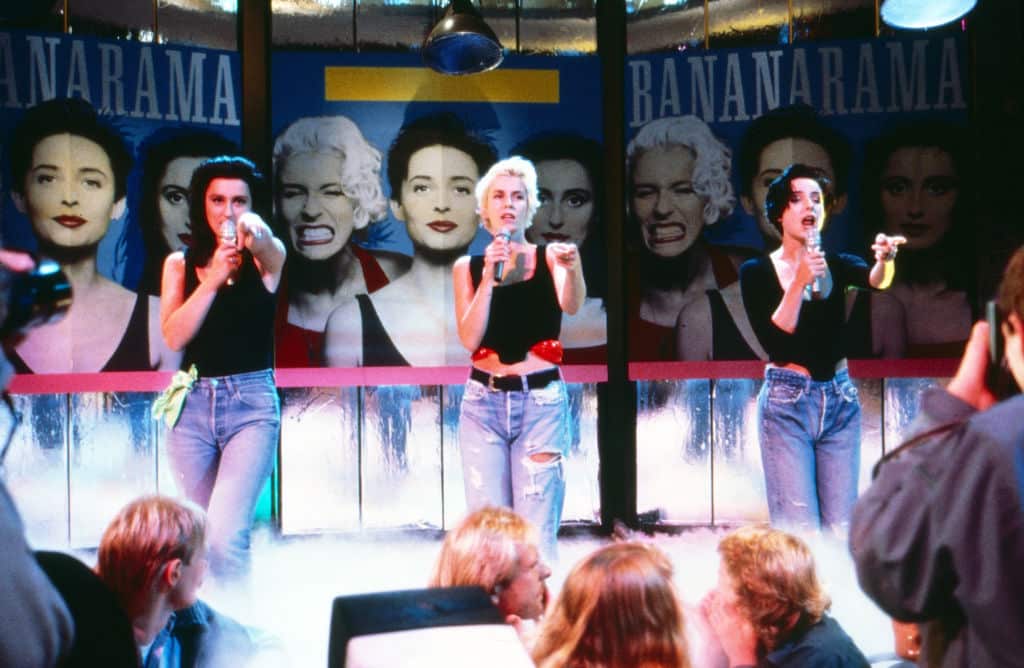
Keren is angry when she thinks about it. “That actually seems really disgusting. They would put you in the most expensive studios imaginable, spend hundreds of thousands of pounds making an album, take all the money back, and they still don’t give you your stuff. It’s outrageous. I imagine it still goes on to a certain extent. George Michael famously took a huge case against [his label] and I think the more artists that bring it to the public’s attention, maybe the more aware younger people will be.”
It was so much easier for men to have success in the business, but we worked hard and we were determined.
They’re also glad they can now release music without the intense pressures they faced as young women in the ’80s.
“We have complete freedom now really which we just didn’t have then,” Keren explains. “We don’t pressurise ourselves – ‘Oh, we’d better do that because that’ll make it a hit’ – that doesn’t even enter your head, so it’s just the freedom to do exactly as you want and to make the music you want to. There was always much more pressure back in the day than there is now.”
They’re also glad things seem to be at least somewhat better for women in the music industry today than they were in the ’80s.
“When you look back you can see the disparity between how male bands were treated and how females were, how much easier it was for them because they had screaming girls after them,” Sara says. “It was so much easier for men to have success in the business, but we worked hard and we were determined.”
Keren and Sara came of age in a ‘sexist establishment’
Keren is glad the Me Too movement has taken hold in recent years, putting a harsh spotlight on some of the mistreatment women have had to endure.
“It’s fantastic that’s come into the public eye because there are so many times where things happened and you think, ‘What a shame you didn’t speak out.’ You just accepted it. We grew up in a sexist establishment – you just saw that all the time on the TV. You didn’t like it but it’s kind of what happened and you sort of accepted it in a way.”
Both Sara and Keren are also keenly aware of the mistreatment many in the LGBTQ+ community have had to endure.
It shouldn’t be something to overcome, it should be something to embrace and celebrate.
“They have all fought so hard in different ways for their rights, what they want to do, and to be heard,” Sara says. “It’s better than it’s ever been – there’s still a long way to go, but don’t give up the fight because it is worth it and you will get there.”
Keren hopes we’re starting to move closer to a world where LGBTQ+ people can be open about who they are without the fear of discrimination.
“I have friends who felt it wasn’t acceptable and didn’t go down that path until later in life and weren’t true to themselves, and it feels to me now like that shouldn’t be happening. It shouldn’t be something to overcome, it should be something to embrace and celebrate.
“Let’s hope in the future that’s the way it is.”
Masquerade is out on Friday 22 July.
Actual Story on Pink News
Author: Patrick Kelleher


